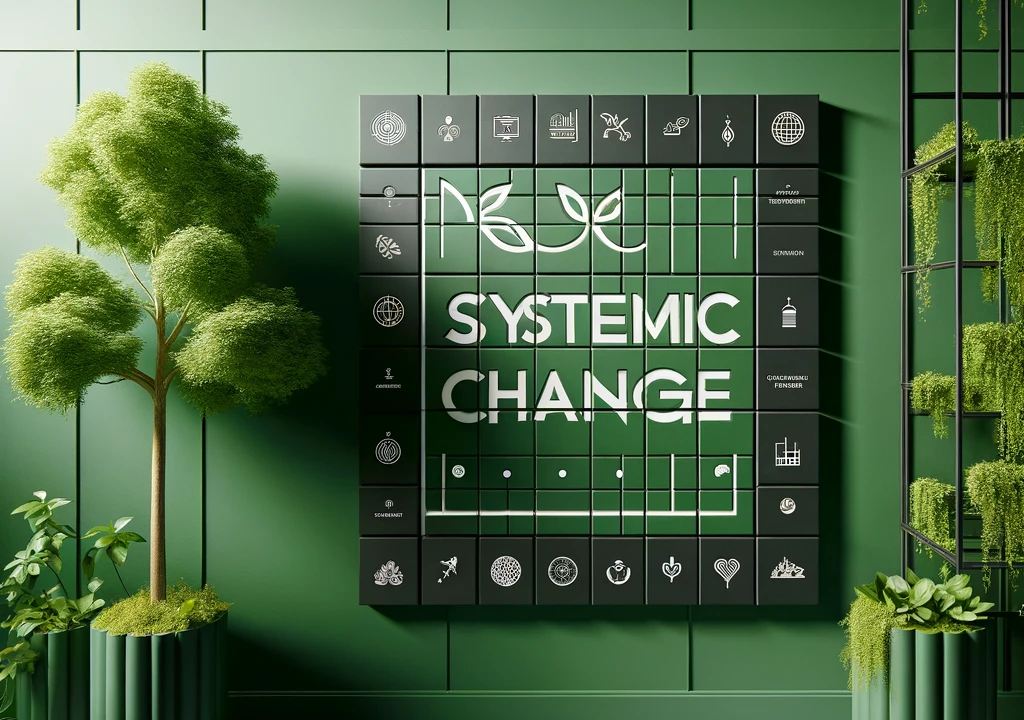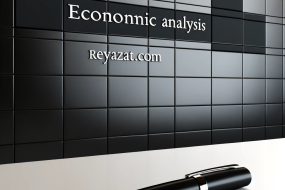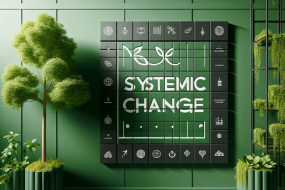
“Strategic Imperatives for Business Leadership in the Transition to an Ecological Economy: The Role of Purpose-Driven Entrepreneurship in Promoting Sustainability”
Dr Farhad Reyazat – London School of Banking & Finance
August 2023
Introduction
The dawn of the 21st century has witnessed an unprecedented escalation of environmental and social challenges that threaten the very fabric of our global society. Climate change, with its dire implications for global weather patterns, sea levels, and biodiversity, stands at the forefront of these challenges, presenting an existential crisis to humanity and the natural world. Alongside this, the relentless depletion of natural resources and the exacerbation of waste and pollution have further compounded the urgency for immediate and sustained action. These environmental calamities are paralleled by deepening social inequalities, where disparities in wealth, access to healthcare, education, and economic opportunities continue to widen, exacerbating the divide between the affluent and the marginalized. The convergence of these environmental and social crises underscores a critical juncture in human history, demanding a re-evaluation of traditional economic models and business practices that have long prioritized short-term gains over long-term sustainability and equity.
Amid this backdrop emerges the concept of an ecological economy—a paradigm that seeks to harmonise economic activities with ecological balance, emphasising sustainability, resource efficiency, and social equity. Unlike conventional economic models that often overlook environmental costs and social disparities, an ecological economy system advocates for a holistic approach to economic development, one that recognises the intrinsic value of natural ecosystems and the imperative of maintaining their integrity for future generations. This model posits that true economic prosperity cannot be achieved or sustained at the expense of the planet’s ecological health or social well-being. Instead, it calls for an integrated approach to economic planning and decision-making, where environmental stewardship and social responsibility are integral to business strategies and national policies. The importance of an ecological economy transcends mere environmental conservation, extending to the very resilience and sustainability of human societies, ensuring that economic growth does not undermine the ecological and social foundations upon which it depends.
In response to these pressing challenges and the call for a more sustainable and equitable economic model, purpose-driven entrepreneurship has emerged as a powerful catalyst for change. This new breed of entrepreneurship goes beyond the traditional profit-centric business ethos, embedding social and environmental objectives at the core of business strategies. Purpose-driven entrepreneurs are characterized by their commitment to leveraging business as a force for good, addressing societal challenges, and contributing to the well-being of communities and the environment. This approach represents a paradigm shift in how businesses perceive their societal role, advocating for a model where commercial success is intrinsically linked to positive social and environmental impact.
Purpose-driven entrepreneurship embodies the principles of an ecological economy, demonstrating how businesses can thrive while contributing to the sustainability of the planet and the prosperity of all its inhabitants. By prioritising sustainability, these enterprises not only mitigate risks and capitalize on new opportunities but also play a pivotal role in driving the transition towards an ecological economy. Through innovative business models, sustainable practices, and a commitment to ethical values, purpose-driven entrepreneurs are setting new standards for what it means to be successful in business, championing a future where economic development is in harmony with ecological preservation and social equity.
As the world grapples with the dual crises of environmental degradation and social inequality, the emergence of purpose-driven entrepreneurship offers a beacon of hope and a viable pathway forward. This evolution in business philosophy and practice is not merely a response to the challenges of our time but a proactive and visionary approach to reshaping the future of our planet and its people. In embracing the principles of an ecological economy, purpose-driven entrepreneurs exemplify the transformative power of business to effect meaningful change, heralding a new era of sustainability, inclusivity, and resilience.
The Imperative of Sustainability
In the quest for sustainable development, the ecological economy system emerges as a crucial framework, emphasizing the harmonization of economic activities with environmental preservation and social equity. This model challenges the traditional economic paradigms that have contributed to extensive environmental degradation and social disparities, advocating instead for a holistic approach that integrates sustainability into the core of economic decision-making. The imperatives of sustainability — addressing climate change, curtailing resource depletion, and mitigating waste and pollution — are not only environmental concerns but pivotal economic and business considerations that have far-reaching implications for the global economy and the business community.
Climate Change: A Pressing Economic Liability
Climate change represents one of the most significant threats to global stability and prosperity. According to the Intergovernmental Panel on Climate Change (IPCC), the planet is on a trajectory towards a 3–4°C increase in global temperatures by the end of the century if current emission patterns persist. This stark reality carries profound economic implications, with the potential to disrupt global supply chains, impair agricultural productivity, and escalate the frequency and severity of natural disasters. The economic costs are staggering, with the National Oceanic and Atmospheric Administration (NOAA) estimating that in 2020 alone, the United States faced 22 separate billion-dollar weather and climate disasters, cumulatively costing $95 billion in damages. Globally, the cost of inaction on climate change is projected to reach $69 trillion by 2100, according to the Global Commission on the Economy and Climate.
Resource Depletion: The Unsustainable Consumption Quandary
The relentless exploitation of natural resources underscores the urgency of transitioning to a more sustainable economic model. The Global Footprint Network highlights that humanity is currently using natural resources 1.75 times faster than the planet’s ecosystems can regenerate. This overconsumption leads to the depletion of vital resources such as freshwater, minerals, and forests, jeopardizing not only ecological balance but also economic stability. The World Economic Forum identifies water scarcity, driven by overuse and climate change, as a top global risk, with the potential to displace 700 million people by 2030. For businesses, the depletion of natural resources poses significant risks, including increased operational costs, supply chain vulnerabilities, and the loss of raw materials essential for production.
Waste and Pollution: The Economic Toll of Unsustainable Practices
The environmental impact of waste and pollution extends beyond ecological degradation, encapsulating significant economic costs and challenges for businesses. The World Bank estimates that global waste generation will increase by 70% by 2050 if current practices continue. This surge in waste not only strains waste management systems but also contributes to pollution, with plastics and electronic waste posing particular challenges to marine life and human health. Economically, the costs of pollution are immense. The World Health Organization (WHO) estimates that air pollution costs the global economy $5.11 trillion annually in welfare losses, with additional costs in healthcare expenses and lost labor productivity. Businesses bear a portion of these costs directly, through increased healthcare premiums for employees and indirectly, through diminished worker productivity and consumer demand in polluted areas.
Implications for the Business Community and the Global Economy
The intersection of climate change, resource depletion, and waste and pollution presents multifaceted challenges and opportunities for the business community. Companies are increasingly recognizing that sustainable practices are not just ethical imperatives but strategic economic decisions. Sustainability can drive innovation, open new markets, and enhance competitiveness. Moreover, businesses that fail to adapt to these realities face not only reputational damage but also regulatory risks and financial losses. As consumers, investors, and governments demand greater environmental accountability, the transition towards an ecological economy is becoming an essential strategy for long-term business resilience and growth.
In conclusion, the imperative of sustainability within the ecological economy system is clear. The economic ramifications of climate change, resource depletion, and waste and pollution necessitate a profound rethinking of how businesses operate and how economies are structured. Embracing sustainability is no longer optional but a fundamental requirement for securing economic prosperity and ensuring the well-being of future generations. The business community, by integrating sustainable practices into their core strategies, can lead the way in this critical transition, fostering a more resilient, equitable, and sustainable global economy.
The Business Case for Purpose-Driven Entrepreneurship
In an era marked by environmental consciousness and social responsibility, purpose-driven entrepreneurship emerges as a potent strategy for businesses aiming to align profitability with sustainability. This paradigm shift towards adopting sustainability-focused approaches is not merely a moral imperative but a strategic maneuver that yields significant benefits for businesses across various dimensions, including market positioning, innovation, operational efficiency, and financial performance. Empirical evidence and market trends underscore the burgeoning consumer demand for sustainable practices, further reinforcing the business case for purpose-driven entrepreneurship.
Consumer Demand and Market Trends
The global consumer landscape is witnessing a pronounced shift towards sustainability, with an increasing number of consumers expressing a preference for products and services that are environmentally friendly and socially responsible. A Nielsen report reveals that 73% of global consumers are willing to pay a premium for sustainable offerings, a sentiment particularly strong among younger demographics. This burgeoning demand is catalyzing market trends, compelling businesses to incorporate sustainability into their core offerings. Companies that have embraced this shift are not only capturing a growing market segment but are also building brand loyalty and enhancing their corporate reputation. For instance, Unilever’s “Sustainable Living” brands, which focus on solving social or environmental challenges, are growing 69% faster than the rest of the business and delivering 75% of the company’s growth.
Innovation and Sustainability
Purpose-driven entrepreneurship fosters a culture of innovation, encouraging businesses to explore new materials, technologies, and processes that reduce environmental impact and meet societal needs. This drive towards sustainability-inspired innovation opens up new business opportunities and markets. According to the Boston Consulting Group, companies that integrate sustainability into their innovation processes can achieve up to 19% higher innovation revenues and 16% higher EBIT margins. For example, Tesla’s commitment to sustainable transportation has not only revolutionized the automotive industry but has also propelled the company to a market capitalization that surpasses traditional automotive giants.
Operational Efficiency and ROI
Adopting sustainability-focused practices often leads to enhanced operational efficiency, reducing waste, conserving resources, and ultimately leading to cost savings. Energy efficiency measures, for example, can significantly reduce operational costs. A study by the Carbon Trust indicates that, on average, businesses can cut their energy costs by 20% through simple efficiency measures, which is equivalent to a 5% increase in sales in terms of bottom-line impact. Furthermore, sustainable supply chain practices can mitigate risks associated with resource scarcity and regulatory compliance, ensuring long-term viability and profitability.
The relationship between sustainability and return on investment (ROI) is increasingly evident, with sustainable business practices driving financial performance. A study by McKinsey & Company highlights that companies with high ratings for environmental, social, and governance (ESG) factors have a lower cost of debt and equity; 80% of the studies show that stock price performance is positively correlated with good sustainability practices. Additionally, socially responsible investment (SRI) funds, which prioritize companies with strong sustainability records, are experiencing significant growth, with assets under management exceeding $30 trillion.
The business case for purpose-driven entrepreneurship is compelling, underscored by the tangible benefits of adopting a sustainability-focused approach. As consumer demand for sustainable practices continues to rise, businesses that align their operations and innovations with ecological and social principles are poised for success. The synergy between sustainability, innovation, operational efficiency, and financial performance not only enhances competitive advantage but also positions businesses as leaders in the transition towards a more sustainable and equitable global economy. Purpose-driven entrepreneurship is not just good for the planet and society; it is a strategic imperative for businesses seeking to thrive in the 21st century.
Towards an Ecological Economy: The Role of Business Leaders
As the global community confronts the dual crises of environmental degradation and socio-economic inequality, the transition towards an ecological economy becomes imperative. Within this transformative journey, business leaders play an instrumental role, leveraging their influence, resources, and innovation capabilities to drive meaningful change. Ambitious goal-setting, cross-sector collaboration, investment in sustainable innovations, and stakeholder engagement emerge as critical strategies for navigating this transition. By embedding these strategies into their core operations, business leaders can catalyze the shift towards a more sustainable, resilient, and equitable global economy.
Ambitious Goal-Setting in Alignment with Sustainability
The foundation of leading in an ecological economy is the establishment of ambitious, quantifiable sustainability goals. These objectives not only signal a company’s commitment to ecological and social stewardship but also provide a framework for measuring progress and driving internal accountability. The Science Based Targets Initiative (SBTi) reports that over 4,000 companies have committed to science-based targets, aligning their corporate goals with the Paris Agreement’s aim to limit global warming to well below 2°C above pre-industrial levels.
Fostering Collaboration Across Sectors
Addressing the multifaceted challenges of sustainability necessitates collaboration across industries, governments, and civil society. The complexity of issues such as climate change, resource depletion, and social inequality requires a concerted effort that transcends individual corporate initiatives. The United Nations Global Compact, the world’s largest corporate sustainability initiative, exemplifies this collaborative approach, engaging over 12,000 companies and 3,000 non-business participants in shared efforts to advance universal principles on human rights, labor, environment, and anti-corruption. Through platforms like these, business leaders can work alongside a diverse range of stakeholders to co-create solutions, share best practices, and scale impact.
Investing in Sustainable Innovations and Business Models
Innovation is the engine driving the transition to an ecological economy, and business leaders are at the helm. Investing in sustainable technologies, products, and business models is crucial for addressing environmental challenges while unlocking new market opportunities. According to the International Energy Agency (IEA), global investment in clean energy needs to triple by 2030 to around $4 trillion, to achieve net-zero emissions by 2050. Forward-thinking companies are already capitalizing on this trend, with the renewable energy sector witnessing a record $303.5 billion in investment in 2020, underscoring the economic viability and growth potential of sustainable innovations.
Educating and Empowering Stakeholders
Lastly, the role of business leaders extends beyond internal operations and industry collaborations to include the education and empowerment of stakeholders. By fostering a culture of sustainability within and beyond their organizations, leaders can amplify their impact. Initiatives such as employee engagement programs in sustainability practices, consumer awareness campaigns, and community-based projects are vital. For example, Unilever’s Sustainable Living Plan not only aims to decouple the company’s growth from its environmental footprint but also seeks to influence billions of consumers to adopt more sustainable living practices, demonstrating the power of stakeholder engagement in driving widespread change.
The pathway towards an ecological economy is paved with challenges, but it also offers unparalleled opportunities for innovation, growth, and leadership. Business leaders, with their capacity for goal-setting, collaboration, innovation, and stakeholder engagement, are uniquely positioned to spearhead this transition. By embedding sustainability at the heart of their strategies and operations, they can drive the systemic changes needed to secure a sustainable future for all, demonstrating that economic prosperity and ecological stewardship can go hand in hand.
Conclusion
In the face of escalating environmental and social challenges, the transition towards an ecological economy represents a pivotal shift in the global business landscape. This article has elucidated the strategic imperatives for business leadership in harnessing purpose-driven entrepreneurship to promote sustainability, a journey that is not only morally commendable but also economically prudent. The imperative of sustainability has never been clearer, as climate change, resource depletion, and waste and pollution impose significant risks to the global economy and the very survival of our planet. Purpose-driven entrepreneurship emerges as a beacon of hope, demonstrating that businesses can thrive by integrating social and environmental objectives into their core strategies, thereby contributing to the well-being of communities and the planet.
The business case for purpose-driven entrepreneurship is robust and multifaceted, underscored by the rising consumer demand for sustainable practices and the positive impact on market trends. Innovation, operational efficiency, and return on investment are intricately linked with sustainability, offering businesses a competitive edge in the rapidly evolving global marketplace. Moreover, the role of business leaders in driving the transition towards an ecological economy is critical. Ambitious goal-setting, fostering cross-sector collaboration, investing in sustainable innovations, and educating and empowering stakeholders are key strategies that can catalyze significant change.
As we conclude, it is evident that the journey towards an ecological economy is not just an option but a necessity for long-term business resilience and growth. Business leaders are called upon to lead this transition, embedding sustainability at the heart of their operations and strategies. By doing so, they not only contribute to a more sustainable and equitable world but also unlock new opportunities for innovation and growth. The transformation to an ecological economy requires a collective effort from all sectors of society, with business leaders playing a crucial role in steering this change. In embracing the principles of purpose-driven entrepreneurship, businesses can pave the way for a future where economic development is in harmony with ecological preservation and social equity, heralding a new era of sustainability, inclusivity, and resilience.
Reference
1. Intergovernmental Panel on Climate Change (IPCC), 2021:
– Climate Change 2021: The Physical Science Basis. Contribution of Working Group I to the Sixth Assessment Report of the Intergovernmental Panel on Climate Change. [Online].
2. National Oceanic and Atmospheric Administration (NOAA), 2020:
– Billion-Dollar Weather and Climate Disasters: Overview*. [Online].
3. Global Commission on the Economy and Climate, 2018:
– The New Climate Economy Report 2018*. [Online].
5. World Economic Forum, 2020:
– The Global Risks Report 2020*. [Online].
6. World Bank, 2018:
– What a Waste 2.0: A Global Snapshot of Solid Waste Management to 2050*. [Online].
7. World Health Organization (WHO), 2016:
– Ambient Air Pollution: A Global Assessment of Exposure and Burden of Disease.
8. Nielsen, 2018:
– The Sustainability Imperative*. [Online].
9. Boston Consulting Group, 2019:
– Total Societal Impact: A New Lens for Strategy.
10. McKinsey & Company, 2020:
– Valuing ESG: Doing Good is Good Business.
11. Science Based Targets initiative (SBTi), 2021,Companies Taking Action. [Online]. ‘
13. International Energy Agency (IEA), 2021, World Energy Outlook 2021. [Online].






19 replies on ““Strategic Imperatives for Business Leadership in the Transition to an Ecological Economy: The Role of Purpose-Driven Entrepreneurship in Promoting Sustainability””
This is truly amazing
Greetings! reyazat.com
Did you know that it is possible to send business proposals totally legally? We proffer a new and legal method of sending business offers through contact forms.
Contact Form messages are not likely to end up in spam, as they’re recognized as important.
We want you to trу our service without anу cost!
We will transmit up to 50,000 messages to you.
The cost of sending one million messages is $59.
This offer is automatically generated.
Please use the contact details below to get in touch with us.
Contact us.
Telegram – https://t.me/FeedbackFormEU
Skype live:feedbackform2019
WhatsApp +375259112693
WhatsApp https://wa.me/+375259112693
We only use chat for communication.
good content and interesting point
I definitely recommend this article : https://www.reyazat.com/2024/02/10/strategic-imperatives-for-business-leadership-in-the-transition-to-an-ecological-economy-the-role-of-purpose-driven-entrepreneurship-in-promoting-sustainability/
I love this content and recommend it for reading https://www.reyazat.com/2024/02/10/strategic-imperatives-for-business-leadership-in-the-transition-to-an-ecological-economy-the-role-of-purpose-driven-entrepreneurship-in-promoting-sustainability/
It is really great article
wonderful article I love it
look at this article : https://www.reyazat.com/2024/02/26/shaping-the-future-of-central-banking-with-artificial-intelligence-ai-and-machine-learning-ml/
Ecological economy is interesting subject I really enjoyed it
The Real Person!
Author Agnes acts as a real person and passed all tests against spambots. Anti-Spam by CleanTalk.
Your point of view caught my eye and was very interesting. Thanks.
The Real Person!
Author vintovaya acts as a real person and passed all tests against spambots. Anti-Spam by CleanTalk.
This is great for new leaders
The Real Person!
Author Biohacker acts as a real person and passed all tests against spambots. Anti-Spam by CleanTalk.
This is nice article recommending to all
The Real Person!
Author prod acts as a real person and passed all tests against spambots. Anti-Spam by CleanTalk.
It was very interesting thanks
The Real Person!
Author flip acts as a real person and passed all tests against spambots. Anti-Spam by CleanTalk.
amazing website
The Real Person!
Author karton acts as a real person and passed all tests against spambots. Anti-Spam by CleanTalk.
amazing for entrepreneurs’
The Real Person!
Author flip acts as a real person and passed all tests against spambots. Anti-Spam by CleanTalk.
this is amazing
The Real Person!
Author darren acts as a real person and passed all tests against spambots. Anti-Spam by CleanTalk.
very useful article welldone
The Real Person!
Author dorota acts as a real person and passed all tests against spambots. Anti-Spam by CleanTalk.
Truly amazing
The Real Person!
Author James LSE acts as a real person and passed all tests against spambots. Anti-Spam by CleanTalk.
Excellent article